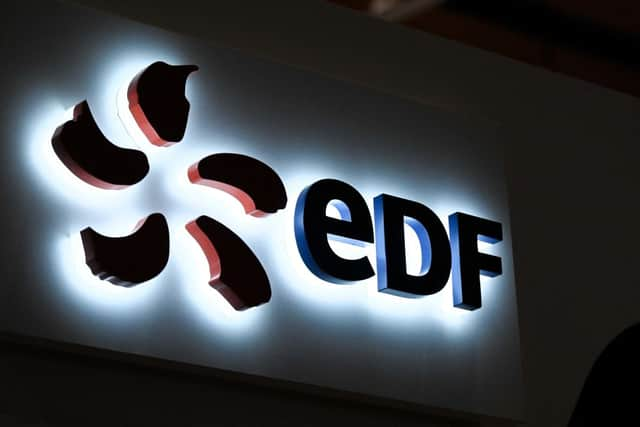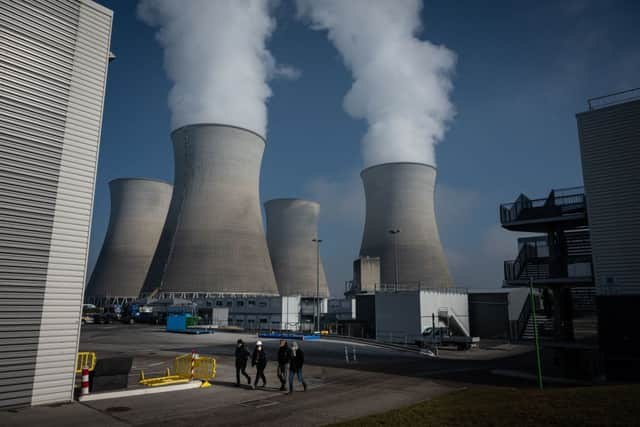Who owns EDF Energy? Is it owned by French government - latest profits explained
and live on Freeview channel 276
Calls for a tougher windfall tax have grown in February after several energy firms announced massive profits.
With wholesale gas, electricity and oil prices having been at elevated levels for much of the past year since Russia’s invasion of Ukraine, energy producers and suppliers have announced record hauls - all despite not having had to have significantly altered their operations. They have generated billions of pounds at the same time as people across the UK have endured the worst cost of living crisis for more than 40 years.
Advertisement
Hide AdAdvertisement
Hide AdShell saw profits more than double to $84.3 billion (£68.1 billion) in 2022; BP said its profits soared from $12.8 billion to $27.7 billion (£23 billion); and Centrica tripled its profits to £3.3 billion. BP and Centrica said their profits would result in cheaper bills for customers over the longer term and would allow them to invest in green technology.
The latest energy generator and supplier to join the profits parade has been EDF Energy. Pre-tax profits from its UK energy generation business (most of which is nuclear) rose to £1.12 billion in 2022 from a loss of £21 million the previous year.
But EDF’s situation is slightly different from those of BP, Centrica and Shell. Its UK domestic and business supplier arm made a £200 million loss, while depreciation in the value of its power stations and one-off impairments meant it registered an overall operating loss of £1 billion.
So, who owns EDF - and what is the wider picture for its finances? Here’s what you need to know.
Who owns EDF?
Advertisement
Hide AdAdvertisement
Hide AdÉlectricité de France (EDF) is a French state controlled energy generation and supply company, which specialises predominantly in nuclear energy but also has a portfolio of wind and solar farms.


Founded as a state monopoly in 1946, it moved its principal focus to nuclear power in 1973 in response to the international oil crisis. The member states of Organisation of the Petroleum Exporting Countries (OPEC) announced an embargo on oil exports to countries which had supported Israel in the Arab-Israeli conflicts of the 1960s and early 1970s - a move which caused energy prices to spike.
France started off by building 13 new nuclear power stations, which quickly expanded until it became the biggest nuclear operator in the world. It has since exported its nuclear technology to other countries, taking control of the UK’s eight-strong nuclear plant fleet in 2009. It has since been given a contract to build a nuclear power station at Hinkley Point in Somerset and looks set to be given the green light to build another plant at Sizewell in Suffolk.
EDF was privatised in 2004 and listed on the markets in 2005. But the French government retained an 83.9% stake in the company.
Advertisement
Hide AdAdvertisement
Hide AdHowever, the government of President Emmanuel Macron has decided to take the business back into full public ownership in a move his Prime Minister Elisabeth Borne has said will enable France “to have full control of the production and our energy future” - two things that are key in light of the climate crisis and the Ukraine war.
It is set to lead to the construction of a fleet of new, smaller reactors around France. These longer-term, investment-heavy projects were unlikely to have received the necessary funding from private investors, the French government said in a statement.
Did EDF Group make a profit?
Although its UK energy generation business proved to be successful for EDF, its wider group fell to a €5 billion (£4.46 billion) loss. Given how EDF’s ownership structure is set to change, this cost will be covered by the French taxpayer.


Much of its loss has been down to President Macron’s decision that EDF would sell its energy at a fixed price well below wholesale market rates - a move which has kept France’s inflation rate relatively low in comparison to the rest of Europe. However, it found itself battling steeper losses due to the closure of a significant proportion of its nuclear power station fleet.
Advertisement
Hide AdAdvertisement
Hide AdMaintenance issues meant 26 of its 56 power plants were out of action for significant periods during 2022. While the number of out-of-action sites has now halved, energy production is also being hit by strike action against pension reforms in France. The headline change to legislation President Macron wants to make is raising the retirement age from 62 to 64.
Comment Guidelines
National World encourages reader discussion on our stories. User feedback, insights and back-and-forth exchanges add a rich layer of context to reporting. Please review our Community Guidelines before commenting.
